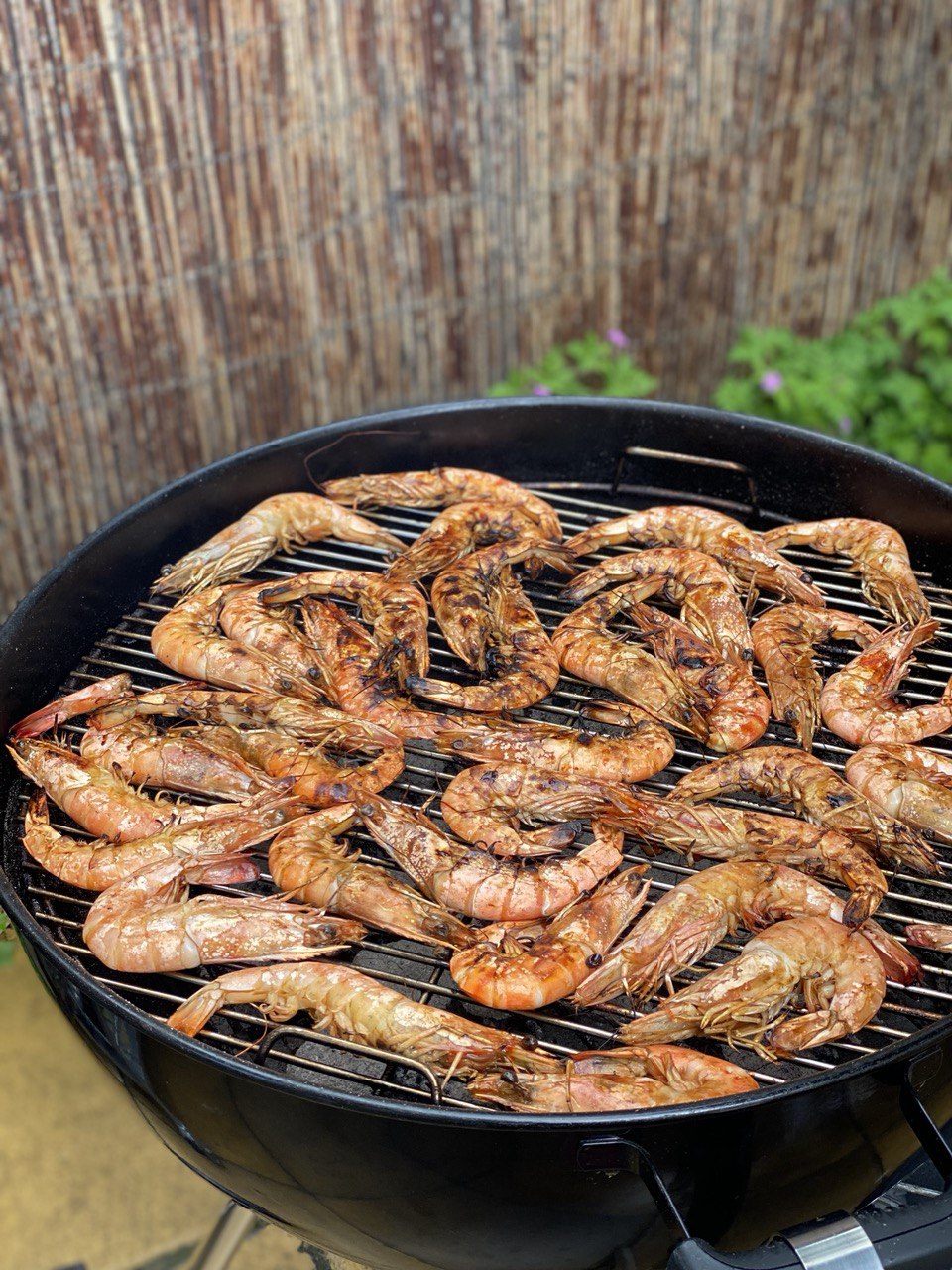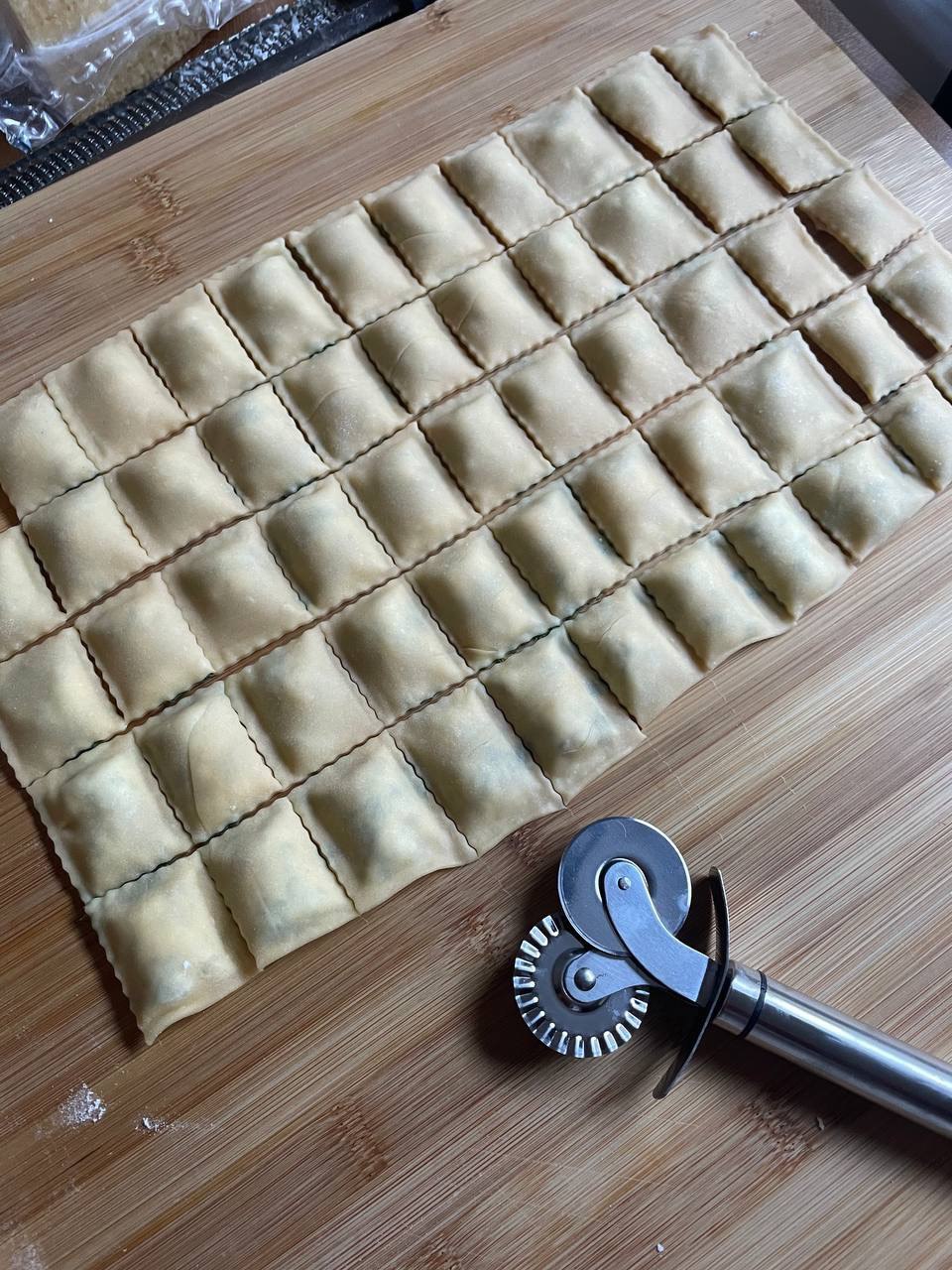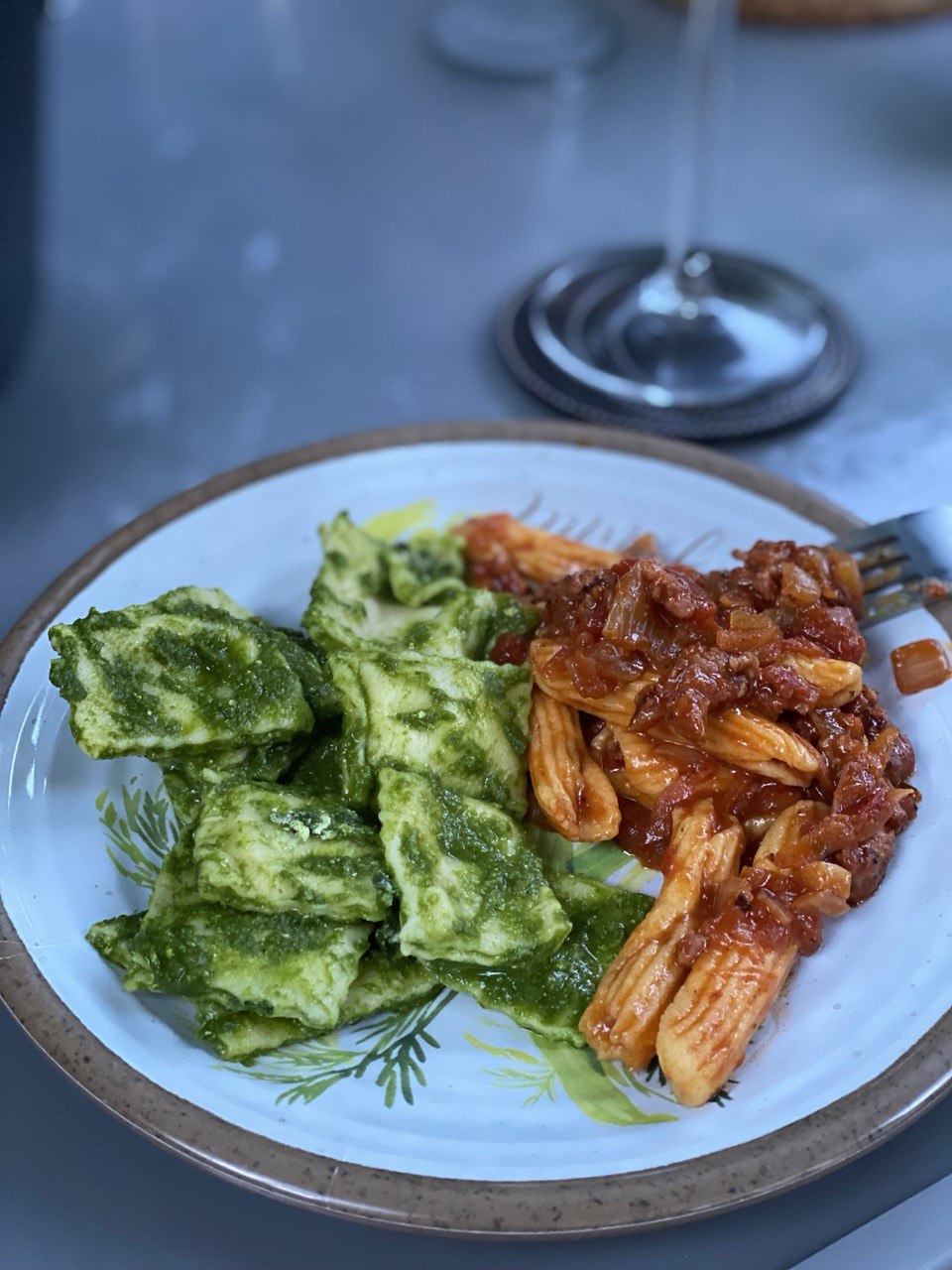Tuesday Triage #44
- TUESDAY TRIAGE #44 by Vadim Drobinin
- On cooking outside
- Things I enjoyed reading
- 1. Ten Rules for Negotiating a Job Offer by @hosseeb
- 2. How to design a sailing ship for the 21st century? by Kris De Decker
- 3. Ditching meat isn’t the answer for climate change. Better farming is by Kyle Jaster
- 4. Absolute wealth, relative wealth, taxes, and staying rich by @auren
- 5. The man who didn't invent Flamin' Hot Cheetos by Sam Dean
- 6. 10 Positions Chess Engines Just Don't Understand by @Sam_Copeland
- 7. Observing my cellphone switch towers by Fabien Sanglard
- 8. Can Machines Control Our Brains? by R. Douglas Fields
- 9. On Building a Fluid User Interface by Rishi Mody
- 10. Ferrofluid display cell bluetooth speaker by Dakd Jung
- Things I didn't know last Tuesday
- 1. Caesium
- 2. Pope Francis said whisky is 'real holy water' in censored clip
- 3. Vanillin
- 4. Robert Frost's The Road Not Taken
- 5. Champagne rhubarb
- 6. Lowercase letter ‘A’
- 7. John Titor
- 8. Why do database columns have a character length of 191?
- 9. Kaufmann’s Posographe
- 10. The Awful German Language
- Book of the week
- Thank you and see you in a week!
TUESDAY TRIAGE #44
by Vadim Drobinin ¶
Your weekly crème de la crème of the Internet is here!
18.05.2021 (read in browser)
On cooking outside ¶
Over the past week I had a pleasure of gradually cook more and more outside.
There is something impeccably British in complaining about the weather most of the time, and then jump out for a quick BBQ whenever the sun shines, even if for half an hour.
I definitely relate to that especially given that in my homecountry most of the meat is grilled during winter times.
Here, despite some thunderstorms and hail, we finally found the time to grill some king prawns marinated in coconut aminos, soy sauce, and lime juice (the leftovers of my last week's adventure that involved peeling a dozen of limes for seven gramms of essence).

Also given that it is almost summer, I tried my hand at gnudi (pronounced "nudie"), an Italian dish that resembles gnocchi but is esentially a ravioli without the past dough - hence the name "nude".
The main ingredients are ricotta and flour, which makes them very easy to work with. And the length is pretty much arbitrary, I know people who shape them as balls, I prefer them disguised as gnocchi:

They are less chewy than gnocchi, and mostly served in Tuscany with brown butter and sage sauce, so I had to respect the tradition.
We grow sage at home, and although this butter is not homemade, next time I might go through that additional effort:

The trick is not to overcook gnudi in water, and then quickly fry on both sides.

They also must be served hot, as otherwise gluten will start to active and make them harder. I topped them with a poached egg cooked in sous-vide, but next time might just throw it into water - the result didn't justify the waiting for it to heat up. It would make sence if I were to make twenty of them though, so can't really complain.

And Sasha made some ravioli with ricotta and spinach:

Look at these beauties!

Served with homemade pesto:

Things I enjoyed reading ¶
1. Ten Rules for Negotiating a Job Offer by @hosseeb ¶
Out of all things one needs to learn, the art of negotiation is probably one of the most important.
I am pretty much a beginner at it; I approached the companies I worked at before with only a couple offers at hand, and that never worked to my advantage.
Do not fall into the trap of valuing companies solely along one dimension. That means don’t just value companies based on salary, equity, or even on prestige. Those are all important dimensions, but so are cultural fit, the challenge of the work, learning potential, later career options, quality of life, growth potential, and just overall happiness. None of these inherently trump any of the other. Anyone who tells you “just choose wherever you think you’ll be happiest” is being just as simplistic than someone who says “just choose the one that offers the most money.” All of these things matter, and your decision should be genuinely multi-dimensional.
I appreciate that many people find the fact that one's salary depends on the way they talk disturbing, but it is as good of a skill as coding.
Companies rarely hire "just" developers.
They want them to speak outloud too.
2. How to design a sailing ship for the 21st century? by Kris De Decker ¶
There are a few questions I don't really have an answer for, one of these being why there are so many things we don't try to re-invent.
Modern buildings, for example, rarely are as beaitiful and spectacular as buildings of the past.
They might be higher, yes, but not really that picturesque.
Another question is about innovation in general, and that's where sailing ships built in this century seize to exist.
There’s two ways to further lower the carbon emissions of sailing ships in comparison to container ships and bulk carriers. One is to build ships from wood instead of steel, such as the Ceiba. If the harvested trees are allowed to grow back (which the makers of the Ceiba have promised), such a ship may even be considered a carbon sink.
Or do they?
3. Ditching meat isn’t the answer for climate change. Better farming is by Kyle Jaster ¶
A few weeks ago one cooking website announced that they won't be publishing recipes with beef anymore and that cause lots of laugh from the cooking community.
I won't be arguing abot benefits of eating meat, as I don't argue about math axioms.
However, as the author rightfully points out, there are way bigger problems with the way food gets to our tables, even if it is not meat.
None of that will change if high-end restaurants simply stop selling meat. A better solution is to support food systems that prioritize more than just the bottom line. Tools exist to make it easier for the average consumer to connect with farms and buy more of their groceries from nearby producers who support the environment.
So think about it: eating a huge steak from a local farm is way more sustainable than eating these two avocados transported through half of the world from some plantation that doesn't care about its employees.
Everything else is just hipsters' noise.
4. Absolute wealth, relative wealth, taxes, and staying rich by @auren ¶
Here is an unusual point about wealth and wealthy: raising taxes benefits to those with money.
Most goods that cater to the wealthy (high-end real estate, charitable giving naming rights, art, buying 10% of a YC company, etc.) are extremely relative. And most really wealthy people are trying to protect their status — their biggest worry is a new class of people getting richer than them fast.
I wonder if the moment I start supporting more taxes would signify a new milestone in my wealth then? Or just a shift in my political stance?
5. The man who didn't invent Flamin' Hot Cheetos by Sam Dean ¶
I was a big fan of Cheetos in my childhood.
I might still be a fan of Cheetos, although I didn't have them in a while.
Sadly, I don't recall Flamin' Hot ones at all – seems like my hometown had none of all those quality of life goodies (no McDonalds too; yes, I know, I can apply for a political asylum just because of it).
Nonetheless, it's quite hilarious that years after its invention there are movies queued and books published - all by someone who seems to be unrelated to the actual story.
Flamin’ Hot Cheetos became a cultural phenomenon in the 2000s. As early as 2005, school administrators considered banning them in the classroom because of their distracting popularity with students; Pasadena schools eventually prohibited them in 2012. Their first meme moment came in that same year, in a 2012 viral rap video, “Hot Cheetos and Takis,” a song written and performed by a group of kids as part of an after-school program in north Minneapolis. The years since have seen pop-up restaurants and fashion lines, and countless Instagram-ready Flamin’ Hot Cheetos menu items at restaurants across the country.
Just looked them up and the only option is to by a few kilos in a pack. Wish me luck, I guess?...
6. 10 Positions Chess Engines Just Don't Understand by @Sam_Copeland ¶
That's a great way to illustrate something I struggle to explain myself: despite modern technologies, there are things we can't really put into algorithms or don't have enough data to convert into models.
Both chess beginners and elite chess engines are challenged by the concept of zugzwang. Zugzwang is a German phrase often translated in chess contexts as "compulsion to move." Simple zugzwangs are typically easy to understand. A player is on move and has a position that would be fine if no move was required; however, chess does not permit a player to pass so a move must be made and the position will crumble.
Do check out the interactive examples: reminded me of all those years I spent playing chess at tournaments.
Great times indeed (albeit very stressful for a child).
7. Observing my cellphone switch towers by Fabien Sanglard ¶
There are certain things within the IT field that feel like magic to me.
It used to be terminal and Assembly back then, and I managed to get past that point, but anything hardware-heavy still fascinates me a lot:
Starting in 1998 with 2G (GSM), all tech-stacks were standardized and documented by 3GPP. These specs span over hundreds of documents. Understanding them seems like a lifetime achievement.
There are no open source LTE stack to learn from and even if there was, emitting on cellphone bands is highly regulated in order to make sure frequencies are not polluted with buggy modems.
8. Can Machines Control Our Brains? by R. Douglas Fields ¶
Is it too bad if I look at the title and think, yes, please? And if so, can I get that Advanced Italian course implanted into my brain over the night, not in three years of studying?
A surprising finding from this research is that the brain does not store information the way we might think — as discrete items categorized logically in a database. Instead, information is encoded as integrated concepts that encapsulate all the sensations, emotions, relevant experiences and significance associated with an item. The words “spaghetti” and “apple” are logically similar in being food items, but each one has a different feel that activates a unique constellation of brain regions.
Seems like not yet.
9. On Building a Fluid User Interface by Rishi Mody ¶
An unexpectedly full of insights story about Instagram's fluid transitions. Usually I am quite sceptical of all things Facebook as I still can't forgive them for making so many people use WhatsApp - every time someone looks me in the eyes and asks to send them a message there, I can't stop laughing and it affects my relationships with people - this article is quite visual and nice:
We wanted to design a navigation system that felt fluid, allowing the user to navigate freely using lightweight, intuitive gestures. In order to give the user a sense of space and direction, we introduced contextual transitions where views are presented directly from the interactive components that represent them.
10. Ferrofluid display cell bluetooth speaker by Dakd Jung ¶
This is something that's very hard to explain in words so I encourage you to check out the pictures.
This is called ferrofluid. It is a material developed by NASA in the 1960s. It was used as both spacecraft fuel and sealing material. I was very interested in this.
In a nutshell though, think of an immortal jellyfish vibing to your music in a speaker.
Things I didn't know last Tuesday ¶
1. Caesium ¶
I was reading through some equations and realised that it'd be a very dumb idea to name a chemical element after Caesar.
And indeed it wasn't.
In 1860, Robert Bunsen and Gustav Kirchhoff discovered caesium in the mineral water from Dürkheim, Germany. Because of the bright blue lines in the emission spectrum, they derived the name from the Latin word caesius, meaning sky-blue.
How come they never told that to me at school? Or did they and I just missed? I won't be able to sleep now.
2. Pope Francis said whisky is 'real holy water' in censored clip ¶
Imagine the Pope traveling to Scotland:
He said: “When they handed him the bottle, instead of just handing it to his assistant as he normally would with a gift, he held it up and said ‘questa e la vera acqua santa’ – which means this is the real holy water.
Those who had a chance to look up the book I've mentioned last month might remember that whisky in Scots Gaelic and Irish is called Uisce Beatha, which is the same as Latin Aqua Vitae, so Pope Francis actualy pulled a really smart joke.
And if you wonder how they turned that word into whisky, it is pronounced as ishkeh ba-ha, which sounds kind of similar.
3. Vanillin ¶
I don't remember how old I was when I've seen my first vanilla pod, but it wasn't long ago.
Mostly I'd interact with vanillin, or sugar pre-mixed with it.
Did you know how it is made though?
First, the seed pods are blanched in hot water, to arrest the processes of the living plant tissues. Then, for 1–2 weeks, the pods are alternately sunned and sweated: during the day they are laid out in the sun, and each night wrapped in cloth and packed in airtight boxes to sweat. During this process, the pods become dark brown, and enzymes in the pod release vanillin as the free molecule. Finally, the pods are dried and further aged for several months, during which time their flavors further develop.
What they fail to mention is that fermented and dried out pods are left to age, and eventually white crystal of vanillin condense on the pods.
Magic!
4. Robert Frost's The Road Not Taken ¶
Seems like one of the most famous American poems was written as an ironic way of saying "Do whatever you want".
Instead, Frost’s poem posits that the small choices we make each and every day also have big impacts on our lives. Each decision we make sets us upon a path that we may not understand the importance of until much, much late.
Robert Frost wrote it in his letter to a friend who couldn't decide if he wants to go to a war or not.
The friend read the poem and went to the war.
And died.
5. Champagne rhubarb ¶
I wrote about the rhubarb triangle a while ago but completely missed the reason their rhubarb is so valuable:
I’ve never been quite sure where the champagne tag sprang from. It might be because fanatics regard it as the crème de la crème of its kind, or that winter rhubarb was, until recently, rare and expensive – unlike its semi-feral cousin that lurks at the bottom of the garden.
So the secret is in covering and growing (or "forcing") it during the winter, which makes the plant way softer.
6. Lowercase letter ‘A’ ¶
Since my birthday I got a chance to ressurect my curiosity in typography and calligraphy: here is something I didn't think about before.
Letter A has two ways to be rendered in lowercase, and that actually has fifteen centuries of history:
They worked in unison and performed different functions, depending on the script being used, the type of document being produced, the hierarchy of each part of the document (headings were fancier, the names and titles of kings and bishops slightly less so, and the main text of the document even less so).
7. John Titor ¶
One of those original memes of the Internet:
John Titor is a name used on several bulletin boards during 2000 and 2001 by a poster claiming to be an American military time traveler from 2036. Titor made numerous vague and specific predictions regarding calamitous events in 2004 and beyond, including a nuclear war.
If you read through the predictions, they're actually quite hilarious.
Can't imagine something like that being pulled today, but that makes me think what I'd say, do or write if I were to travel back by two decades.
Except buying some crypto, I guess.
8. Why do database columns have a character length of 191? ¶
This is such a typical example of hacking one's way through a problem I can't really stop but smile everytime I come across varchar(191):
...and once utf8mb4 came along with characters like 𠼭3 and 🐟, 4 bytes were needed to store each character. There were more character to choose from, so referencing them took more bytes.
The way innodb MySQL databases worked was that you can only have 767 bytes for an index - enough to store 255 3-byte characters (767/3 = 255). This is an extreme example of index optimization based on knowing the size of the data you are indexing! So if the characters took more space to store, then the number of characters you could index had to get smaller. Specifically, 767/4 = 191 characters!
At least the math makes sense.
9. Kaufmann’s Posographe ¶
A beautiful piece of technology from the past, used by photographers:

At first glance this is just a small rectangular plate, about 13 x 8 cm, covered with dense scribbles, with seven pointers fixed to its frame. Then you realize that the pointers are not fixed, but can slide on the frame… and then you note that they are somehow interconnected -- moving any of the small ones will move the larger one this way or that. Strange. But when you see the diagram of the inner mechanism you realize what this is, and it can take your breath away (well, if you’re a techie like me it sure can).
Such a smart idea that reminds me of "reusable" calendars from 1980s: the ones with a circle in the middle that'd re-align weeks every year.
10. The Awful German Language ¶
After finishing with the last week's book I went ahead and looked up some short works of Mark Twain just to come across this beauty:
Twain describes his exasperation with German grammar in a series of eight humorous examples that include separable verbs, adjective declension, and compound words. He is, as the subject suggests, focusing on German as a language, but Twain is also dealing with English to compare the two languages.

I can't mention it without quoting a tiny example:
It is a bleak Day. Hear the Rain, how he pours, and the Hail, how he rattles; and see the Snow, how he drifts along, and oh the Mud, how deep he is! Ah the poor Fishwife, it is stuck fast in the Mire; it has dropped its Basket of Fishes; and its Hands have been cut by the Scales as it seized some of the falling Creatures; and one Scale has even got into its Eye. And it cannot get her out. It opens its Mouth to cry for Help; but if any Sound comes out of him, alas he is drowned by the raging of the Storm.
The awful German language indeed.
Book of the week ¶
If I were to pick a single cocktail style I've been avoiding for years, it would be Tiki.
There is nothing wrong with Tiki cocktails, obviously, except my personal childhood traumas of seeing my mates mixing Fanta and Martini Bianco, and then garnishing them with a cocktail umbrella.
These days I just err on the side of dry cocktails, something very spirit forward at its best, and tend to avoid anything with juices or fruits.
And sadly that makes me quite closed-minded in my own eyes: sure if people mix Tiki drinks for centuries, there is something to it besides the usual addiction to all things boozy and sweet.
To ease my mind I thought I should give them a try, and the best way to do that is to read something from folks way smarter than me in this specific field.
So here I am, wandering through the history of the most holiday drinks in Martin Cate's Smuggler's Cove:
These were tiki mugs, some of the sole surviving artifacts of the great purge. A popular souvenir from your exotic dining experience, untold thousands of these ceramic idols were sent into the wild, most ending up holding pens on a desk, forgotten in a kitchen, or ultimately set adrift at thrift shops and garage sales. Inspection of the idol would reveal a price tag of twenty-five cents and most intriguingly, a name stamped on the bottom or the back: The Islander. The Luau. Tradewinds. Leilani. Where were these places? In an era before the Internet, trips to the library and old phone books were often the only way to decipher the puzzle.
This is one of those books that focus on the history way more than on the recipes, and yet I like it that way. It also features a very detailed introduction into choosing proper rums.
Now I just have to justify buying another seven or eight styles of rum for the bar to my wife.
Luckily she reads this newsletter.
Thank you and see you in a week! ¶
If you have any questions, or want to suggest a link for the next newsletter, please drop me a message on Twitter or reply to this email.
Cheers! 🍸